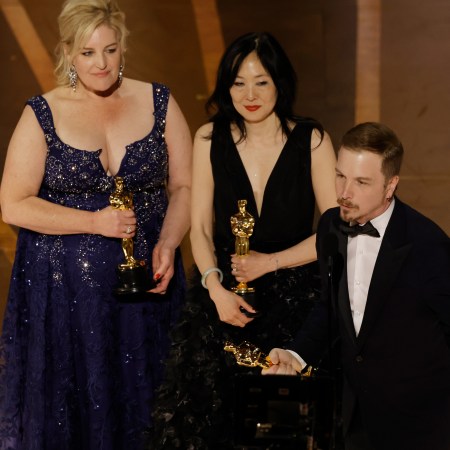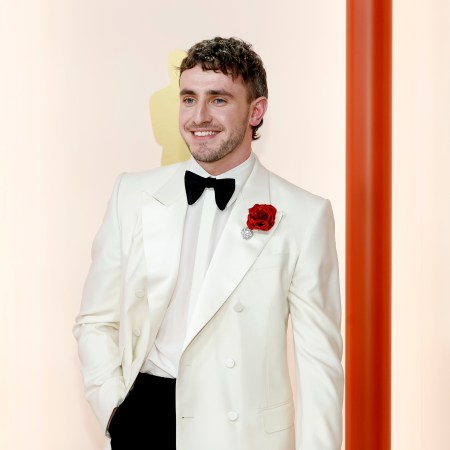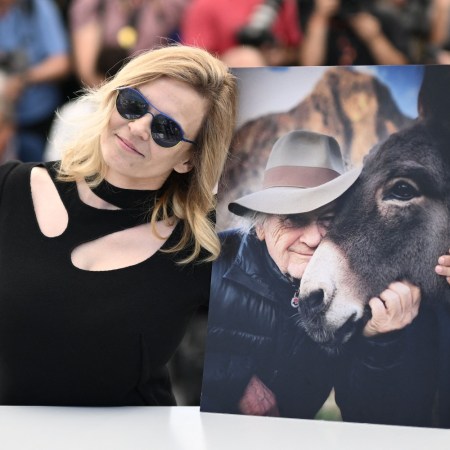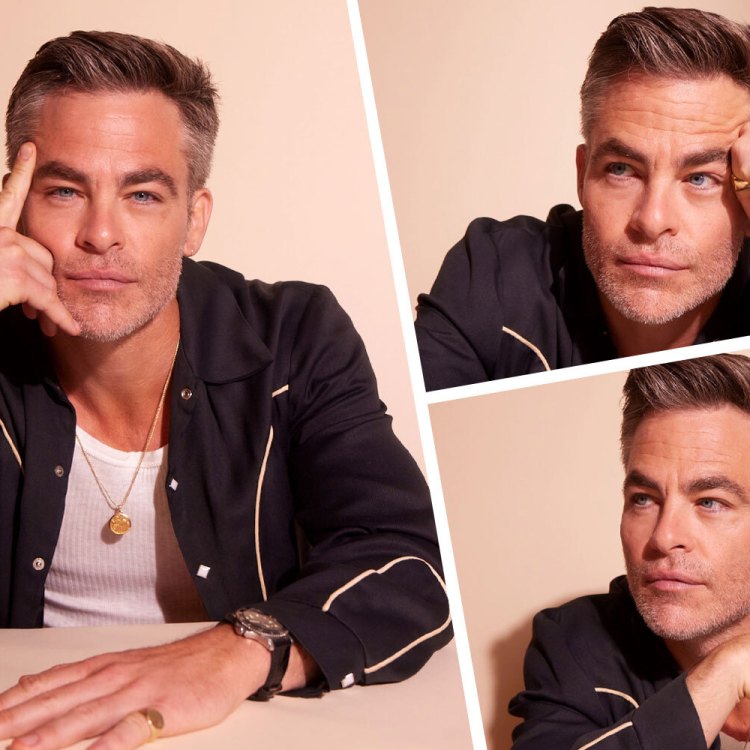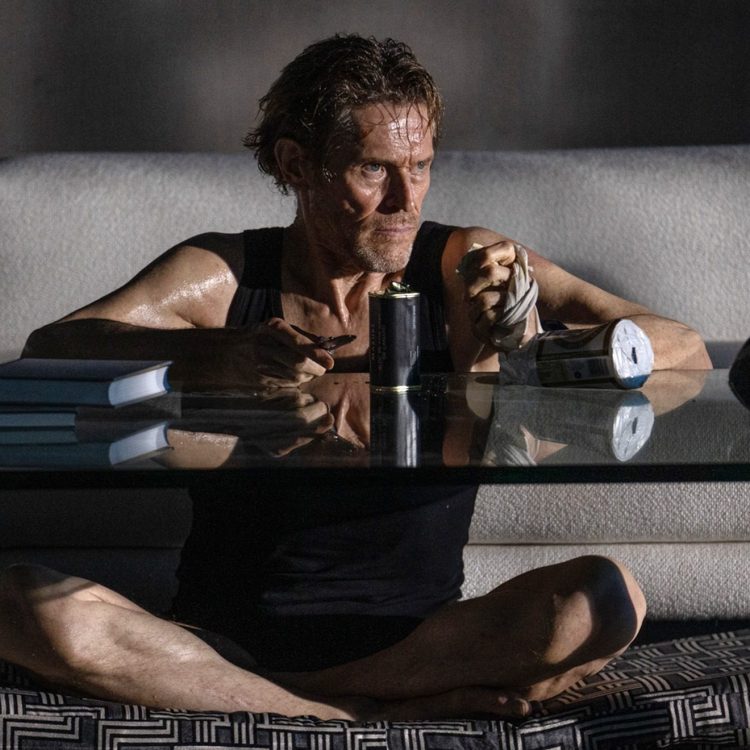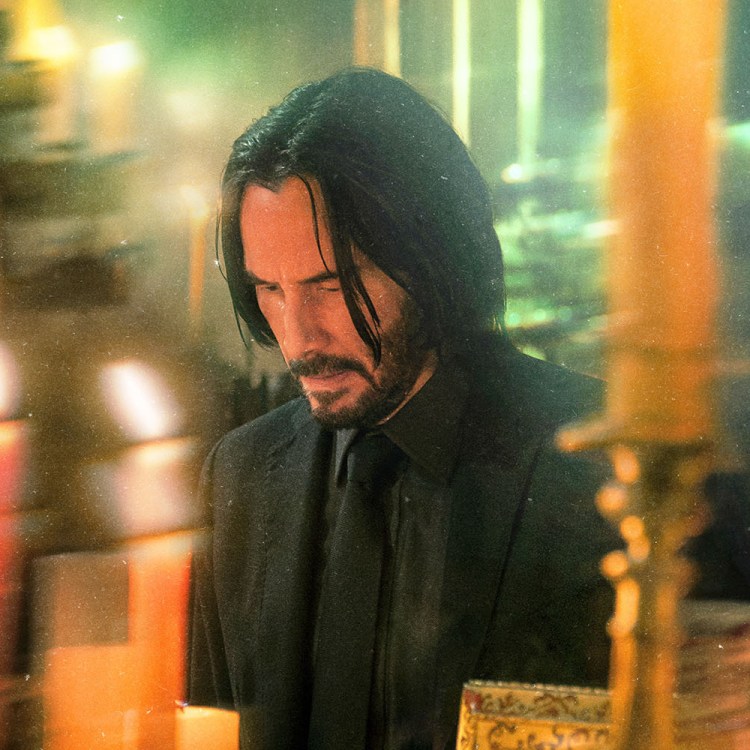Heading into the 92nd Annual Academy Awards, the biggest storyline was arguably who wouldn’t be there: a number of high-profile snubs led some to dust off the old #OscarsSoWhite hashtag, and another year without a single woman nominated in the directing category birthed an SNL sketch spoofing the Oscars’ love of “white male rage” and inspired Natalie Portman to walk the red carpet in a cape embroidered with the names of the female directors who failed to earn a nomination.
It seemed, given all that and the Academy’s history, that yet another war epic (1917) or Quentin Tarantino’s love story to the bygone days of a whiter, male-r Hollywood (Once Upon a Time in Hollywood …) would rule the night. But instead, it was Bong Joon-Ho’s tale of South Korean class warfare, Parasite, that scooped up the most awards, including Best Picture. While there weren’t any surprises in the acting categories — Joaquin Phoenix, Renee Zellweger, Brad Pitt and Laura Dern all continued their awards-season domination — it was refreshing to see a deserving underdog come out on top for the night’s top prize. Check out the evening’s three main takeaways below.
Parasite makes history
Parasite‘s big win wasn’t just a nice moment; it was historic. The movie became the first foreign-language film ever to win Best Picture. It also nabbed three other awards — Best Director, Best International Feature and Best Original Screenplay — and director Bong Joon-Ho came dangerously close to tying Walt Disney’s record for most individual Oscar wins in a single year, set all the way back in 1954. (Disney’s record is four; technically, Best International Feature is awarded to a country, not an individual, so Bong’s official individual tally is three.)
Parasite‘s Best Picture win also led to the best moment of the night. After producer Kwak Sin-ae spoke, the Oscars’ producers cut the mic and lowered the lights, but the crowd of stars — led by Tom Hanks and Charlize Theron — chanted “Up! Up! Up!” and pressured them to bring the lights back on and allow the Parasite team to finish their speeches.
Bong let executive producer Miky Lee do the talking, having already delivered acceptance speeches for the film’s other three awards and offering a deeply relatable expression of gratitude: “Thank you, I will drink until next morning.”
Maybe a host would have been beneficial
This marked the second year in a row that the Oscars went hostless, and this year’s ceremony was proof that maybe it’s time to return to the classic format and bring in someone to emcee the evening’s proceedings. After Janelle Monae opened the show with a Mr. Rogers tribute and a bunch of dancing Jokers, Steve Martin and Chris Rock — who have both previously hosted — came out to essentially serve as surrogate hosts, delivering jokes about everything from Jeff Bezos and the Iowa caucuses to the Academy’s lack of diversity.
But after their shared monologue, Martin and Rock disappeared, begging the question: Why not just let them stay and host the whole thing? Instead, we got a disjointed evening and the confusing phenomenon of presenters showing up with the sole purpose of … introducing other presenters. We could have used a host — or anyone, really — to explain why the Academy trotted out Eminem to perform “Lose Yourself” 18 years after 8 Mile. Instead, we’ll have to settle for Idina Menzel’s viral reaction.
Netflix’s losing streak continues
After going two-for-34 at the Golden Globes last month, Netflix had another disappointing evening. Despite leading this year’s Oscar nominations with 24 nods, the streaming service only managed to take home two awards — Best Supporting Actress for Marriage Story‘s Laura Dern and Best Documentary Feature for American Factory.
Perhaps most surprising is that Martin Scorsese’s The Irishman, which Netflix shelled out millions for in a bid to be seen as a serious awards contender, was completely shut out. The notoriously long mafia drama lost out on Best Picture, Best Director, Best Supporting Actor (with both Joe Pesci and Al Pacino nominated in the category), Best Adapted Screenplay, Best Cinematography, Best Editing, Best Visual Effects, Best Costume Design and Best Production Design. Noah Baumbach’s Marriage Story, another big get for Netflix, went one for six, losing out in the Best Picture, Best Actress, Best Actor, Best Original Screenplay and Best Original Score categories.
Traditional studios won the night, with Neon, Disney and Sony Pictures each taking home four awards. Universal earned three Oscars, while Warner Bros. tied Netflix with two.
This article was featured in the InsideHook newsletter. Sign up now.


